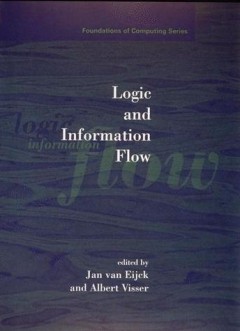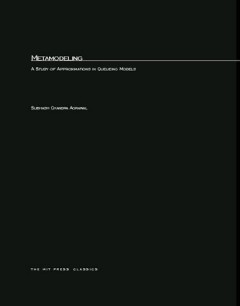Filter by

"Knowledge-Based Neurocomputing "
Looking at ways to encode prior knowledge and to extract, refine, and revise knowledge within a neurocomputing system.Neurocomputing methods are loosely based on a model of the brain as a network of simple interconnected processing elements corresponding to neurons. These methods derive their power from the collective processing of artificial neurons, the chief advantage being that such systems…
- Edition
- 1
- ISBN/ISSN
- 9780262270496
- Collation
- -
- Series Title
- -
- Call Number
- -

Logic and information flow
"The thirteen chapters written expressly for this book by logicians, theoretical computer scientists, philosophers, and semanticists address, from the perspective of mathematical logic, the problems of understanding and studying the flow of information through any information-processing system. The logic of information flow has applications in both computer science and natural language processi…
- Edition
- 1
- ISBN/ISSN
- 9780262285421
- Collation
- -
- Series Title
- -
- Call Number
- -

Logic Testing and Design for Testability
"Today's computers must perform with increasing reliability, which in turn depends on the problem of determining whether a circuit has been manufactured properly or behaves correctly. However, the greater circuit density of VLSI circuits and systems has made testing more difficult and costly. This book notes that one solution is to develop faster and more efficient algorithms to generate test p…
- Edition
- -
- ISBN/ISSN
- 9780262256186
- Collation
- -
- Series Title
- -
- Call Number
- -
Machine Translation: A View from the Lexicon
"Logo for the Macintosh teaches the art of programming to first time programmers. It begins with Turtle Geometry, a series of exercises involving both Logo programming and geometric concepts. Later chapters illustrate more advanced topics, such as the famous DOCTOR program with its simulated psychotherapist and an INSTANT program that enables parents and teachers to create a programming environ…
- Edition
- -
- ISBN/ISSN
- 9780262290838
- Collation
- -
- Series Title
- -
- Call Number
- -

Materialized Views: Techniques, Implementations, and Applications
"When an application is built, an underlying data model is chosen to make that application effective. Frequently, other applications need the same data, only modeled differently. The solution of copying the underlying data and modeling is costly in terms of storage and makes data maintenance and evolution impossible. View mechanisms are a technique to model data differently for various applicat…
- Edition
- 1
- ISBN/ISSN
- 9780262287500
- Collation
- -
- Series Title
- -
- Call Number
- -

Metamodeling :
"In recent years, many approximate methods have been developed for analyzing queueing models of complex computer systems. These ad hoc methods usually focus on specific aspects of system operation, and appear to be different from one another, making it difficult to see the underlying principles of model development, to understand the relationship between different models of the same system, or …
- Edition
- -
- ISBN/ISSN
- 9780262255561
- Collation
- -
- Series Title
- -
- Call Number
- -

The Microelectronics revolution :
"The Microelectronics Revolution is a comprehensive guide to the silicon chip revolution and its impact on society. The distinguished contributors to this volume explain in turn the origins and nature of microelectronics, the characteristics of the burgeoning microchip industry and the increasing use of microprocessors in everyday products.The book details the impact of this new technology on s…
- Edition
- -
- ISBN/ISSN
- 9780262560214
- Collation
- -
- Series Title
- -
- Call Number
- -
 Computer Science, Information & General Works
Computer Science, Information & General Works  Philosophy & Psychology
Philosophy & Psychology  Religion
Religion  Social Sciences
Social Sciences  Language
Language  Pure Science
Pure Science  Applied Sciences
Applied Sciences  Art & Recreation
Art & Recreation  Literature
Literature  History & Geography
History & Geography